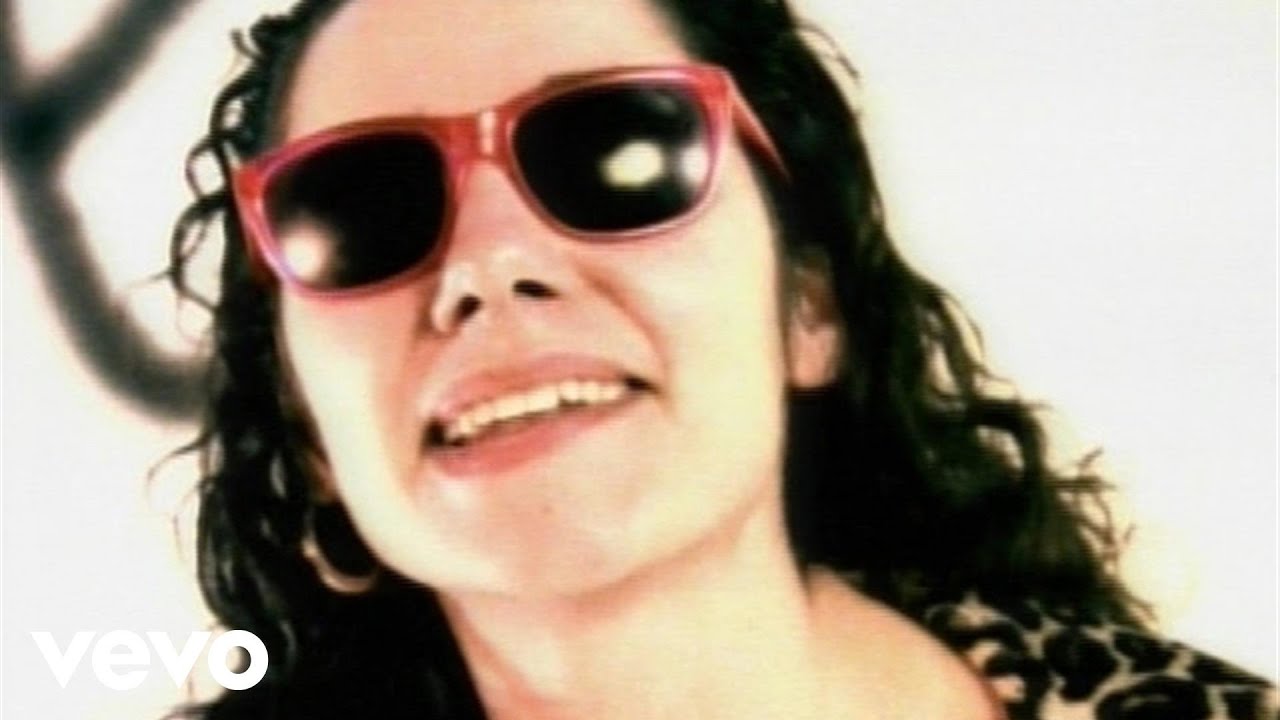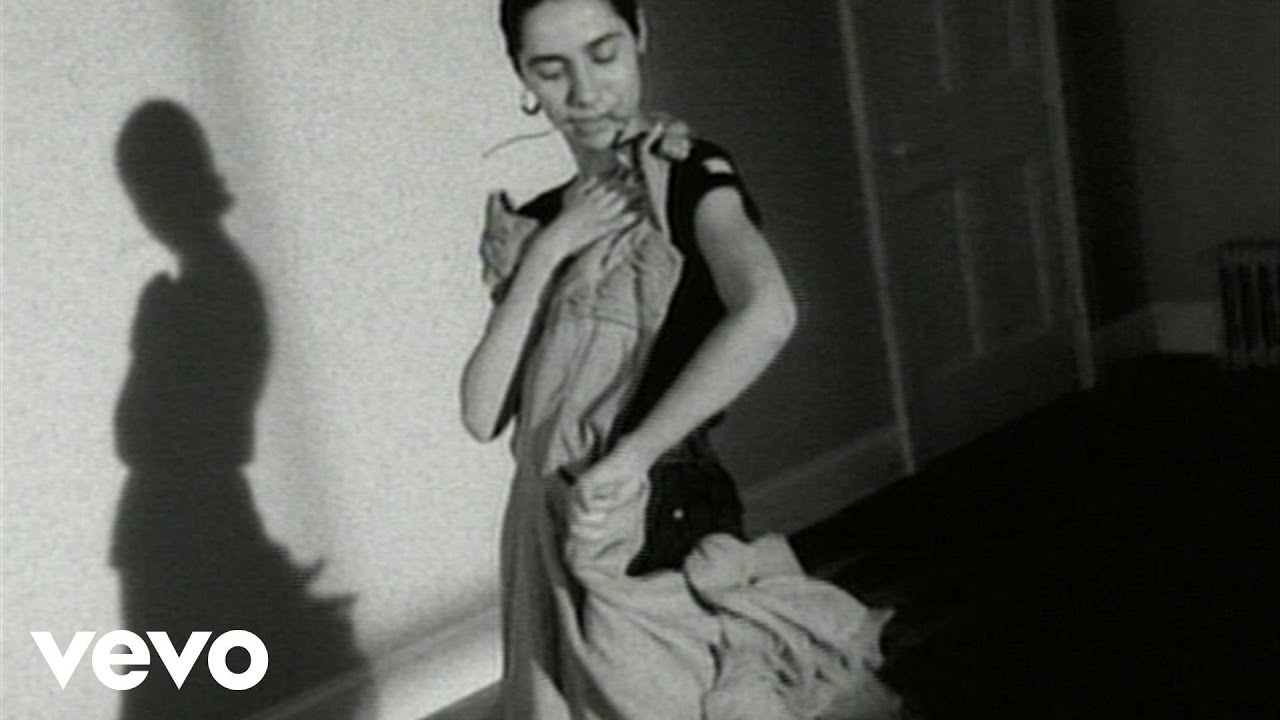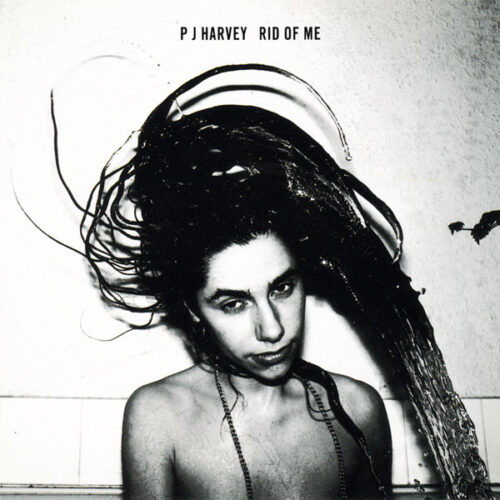25 years ago, I raced back home from Manchester’s Piccadilly Records with an eagerly-awaited album in my sweaty paws. I loaded the CD (sorry for the lack of romance, vinyl fans) and pressed ‘play’. A couple of minutes later I stopped what I was doing, sat down and turned up the volume. I thought I’d just heard Polly Jean Harvey sing "I’ll make you lick my injuries" on the opening title track of her second album, Rid Of Me. I was correct – the song had harpooned me with shock and awe and when Harvey proclaimed "I’m gonna twist your head off, see" I, for one, believed her. As the album unfolded, it was clear that the opening slug of rage wasn’t out of place. Rid Of Me was an anger-fuelled fireball and utterly thrilling.
In 1993 I was a huge PJ Harvey fan. I’d loved Polly’s music from the instant I’d heard the 1991 debut single ‘Dress’. Initially launched as a trio, with Rob Ellis on drums and Ian Olliver on bass, PJ Harvey appeared to arrive fully formed and teeming with emotional power. At the time Nirvana dominated the new ‘alternative mainstream’ but, for me, the mighty Nevermind seemed global and distant – sullied by MTV. PJ Harvey, however, seemed accessible and more visceral – they were a band who demanded a piece of my soul and I gobbled up their debut album, Dry. As my beloved Pixies lurched to a bitter end, I’d found myself a new favourite band.
My love affair intensified with the news that Steve Albini would be engineering a second album. A lead single didn’t disappoint. ’50ft Queenie’ was a barreling riot; Albini’s trademark guttural set-up providing the perfect environ for Harvey’s snarling blast of post punk. "Hey, I’m the king of the world / You ought to hear my song," she shrieked, as if to set out her new world order. It was a breathlessly exciting listen – raw and vitriolic and chest-beatingly brazen. And when the album followed, on May 4, 1993, all sonic hell broke loose amid a maelstrom of gothic blues and garage punk.
However, the back story to Rid Of Me revealed an artist in a state of mental exhaustion. Much of the album was written in Harvey’s home county of Dorset in October 1992. At the time, Polly was suffering from what she would describe as a "breakdown". Over the previous 18 months, Harvey’s life had changed beyond recognition and she had fled her North London flat for the tranquility of the English coast.
Originally from the tiny village of Corscombe, the country girl had moved to the capital to further her music career. With the ‘Dress’ single immediately creating a huge impact, she was immediately thrown into a hectic touring schedule. While the first album had been released by the small Too Pure imprint, Harvey was further stressed by finding herself at the centre of a major label bidding war. Although nothing had been formally signed with Too Pure, she felt indebted to them, while sensing that a major deal would be the better long-term option (Rid Of Me would be released by Island Records).
On top of that, the singer-songwriter had just endured the painful ending of her first proper relationship – an experience that would inspire a number of the most jagged moments on Rid Of Me. By October, Harvey wasn’t eating properly and could barely bathe or clean her teeth. Her mother drove her back to Dorset to recuperate and find solace in the countryside. Back home, Polly would write a new batch of songs. "It’s going to get ugly," she would tell a friend at the time.
Compared with Dry, Rid Of Me gleaned its emotional power by sounding even more abrasive, claustrophobic and edgy, and thus echoing Harvey’s fragile state of mind. The album was recorded during December 1992 over a two-week period at Steve Albini’s Pachyderm Studios in the frozen backdrop of Cannon Falls, Minnesota. Inspired by her love of Howlin’ Wolf and the Albini-produced Pixies’ masterpiece Surfer Rosa, Polly was eager to utilise the renowned studio techician’s ability to capture visceral soundscapes.
Using in the main only a single electric guitar, drums and bass, Harvey experimented with distortion effects – as on the vocals for ‘Yuri-G’ – while retaining Albini’s trademark ‘live’ sound. And while it’s fair to say that, like other Albini-produced albums at that time (The Breeders’ Pod and The Wedding Present’s Seamonsters spring to mind), Rid Of Me saw PJ Harvey undergo the standard Albinification treatment, the results were explosive.
If the choice of Albini as the album’s engineer made perfect artistic sense, his presence on Rid Of Me came with political baggage. His previous bands included the brilliant – but willfully misogynistic – Big Black and Rapeman (named after a Japanese manga character). Albini’s public personae, at least, seemed at odds with the music press’ perceived take on PJ Harvey’s worldview, even if in reality Polly found him to be both gentle and an inspiring figure (and one who would allegedly set his feet on fire to keep the band amused during recording sessions).
At that time, however hard bitten and well seasoned (and usually male and from Melody Maker) music journalists tried to force her into their neat pigeonholes, Harvey rejected being tagged as a feminist, and thus annoyed those who believed that any talented, independent female artist must, by definition, be outspoken on issues pertaining to women. "I don’t even think of myself as being female half the time," she would reveal in 1993, further complicating the matter. "When I’m writing songs I never write with gender in mind. I write about people’s relationships to each other."
And Harvey was true to her word, with regards to the subversion of gender roles within the album’s caustic lyrics. "Hey I’m the king of the world / You ought to hear my song / You come on and measure me / I’m twenty inches long," she roared, as her "50 foot queenie / Force ten hurricane" went toe-to-toe with an over-sized male alter ego on ’50ft Queenie’. Even better, and perhaps the finest moment on Rid Of Me, was the seething pop of ‘Man-Size’ on which Harvey assigned herself a male façade and cried, "My babe looking cool and neat / I’m pretty sure good enough to eat / Man-size no need to shout / Let it all, let it all hang out." I was never convinced that either song was steeped in misandry – I interpreted them as highlighting the artist’s fascination with the more preposterous aspects of the male psyche.
On a number of levels, Rid Of Me was an album rooted in carnal lust and sexual betrayal. When Harvey hissed "You snake / You crawled / Between / My legs" on the tense howl of ‘Snake’, she was raging about her "fake" "liar" of a lover. However, it was the track ‘Dry’ that painted an even more vivid mental image. "I caught it in the face," Polly revealed on the song’s opening line, before the chorus kicked in with the repeated refrain of "you leave me dry."
Taken literally, it was a brutally honest assessment, but while ‘Dry’ may well have been partly about the unaroused state of Harvey’s vaginal mucosa, I always assumed it was written about the breakdown of relationships in general – and the song struck a deep chord within me. At the time, I was in a particularly joyless relationship, and knew that I was not providing love, support or any level of happiness to my partner. A song like ‘Dry’ was my cardiac dagger – Polly had vocalised how my girlfriend ‘might’ be feeling and I flinched at the notion. Rid Of Me was a particularly difficult and compelling listen.
Elsewhere, the album delivered with unerring consistency. ‘Yuri-G’ was a ferocious thundercrack which spun a web of intrigue. The lyrics were wonderfully opaque; "Yeah I wish I was Yuri-G / It’s just the things that she does to me" could have alluded to a fascination for another woman (‘yuri‘ is a Japanese slang word for lesbian) or have simply revealed Harvey’s known interest in Pagan lunar rituals (and a yearning to get closer to the moon, as Yuri Gagarin had). ‘Missed’ was a giant reqiuem for the broken-hearted, while ‘Rub ‘Til It Bleeds’ was a looser, bluesier track that perhaps provided the most insight to future musical directions.
At the core of Rid Of Me lay two intriguing oddities – a ballsy but slightly pointless version of Dylan’s ‘Highway ’61 Revisited’, and ‘Man-Size Sextet’, a reinterpretation of ‘Man-Size’ recorded with longtime friend Rob Ellis, containing a spectral string arrangement and Harvey singing through gritted teeth in the manner of a ventriloquist.
Rid Of Me was released to huge critical acclaim and garnered some pretty respectable sales. The album earned Harvey her first Mercury Prize nomination (she’d lose out to Suede’s debut album, but has since become the first artist to win the award twice). However, as Rid Of Me gained success in America, all was not well within the band as frictions began to spark during an extended Stateside tour. The trio split in late 1993 with Polly continuing as a solo artist. Over the next 18 months she would work with various musicians including her longstanding collaborator John Parrish, Bad Seed Mick Harvey and a Belgian drummer called Jean-Marc Butty. Her next album, 1995’s To Bring You My Love, unveiled a wider sonic palette as Harvey flexed her creative wings. It was if Rid Of Me had purged her of a basal angst, allowing the artist to explore and bloom.
Today, PJ Harvey stands as one of the greatest British musicians of the last 25 years. 2011’s Let England Shake, is perhaps the finest record of the current decade and as an artist she towers above her peers. In 1993, Rid Of Me, was a blast of fury and naked hurt. It was as raw as Polly Jean Harvey would ever get; a slate-cleaner for future incarnations. 25 years later, Rid Of Me still has the ability to shock and awe.





